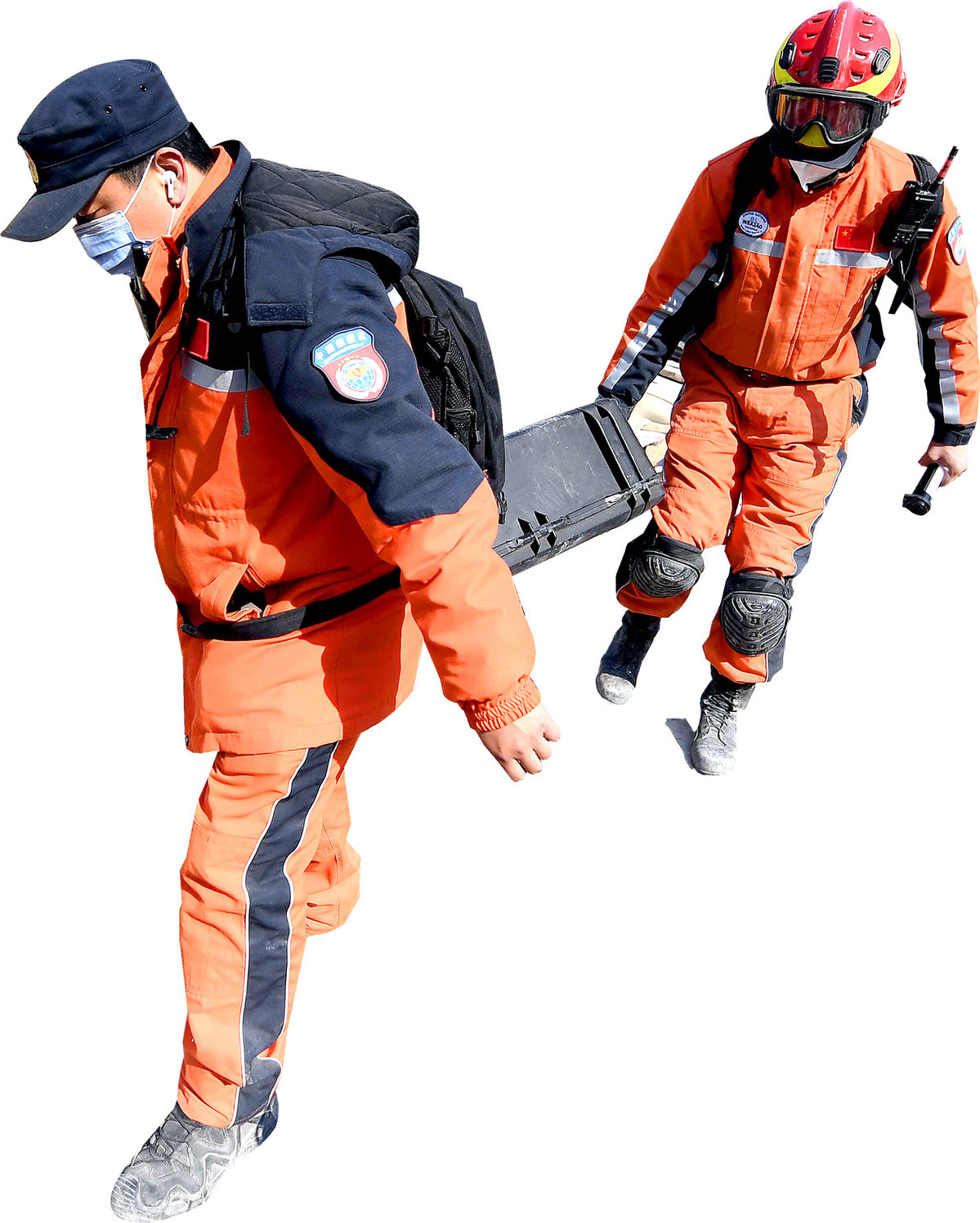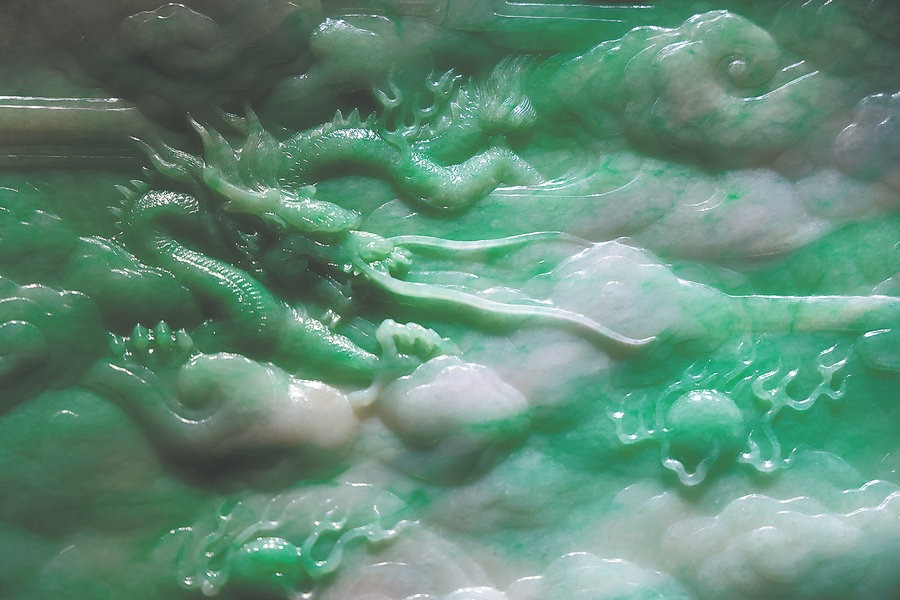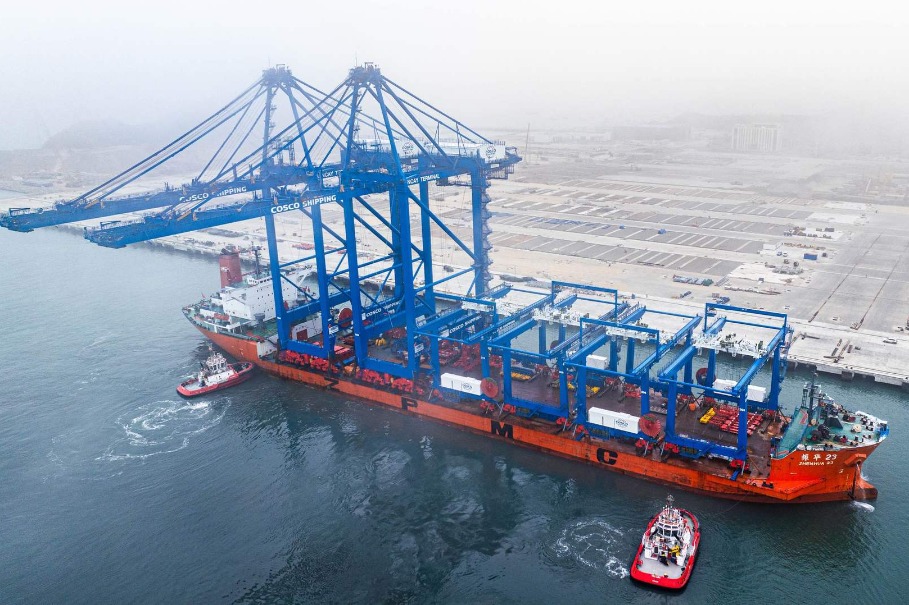Chinese civilian groups quick to join quake rescue work

Moving sight

Wang and his colleagues were moved by the sight of a Turkish woman using her body heat to warm the hands of female BSR member Zhu Yanjun on Friday. Zhu is one of eight female members in Wang's 60-member squad.
Seeing Zhu, who comes from Hunan province, and her teammates joining the rescue operation over the remains of a flattened building, the woman, who was talking with some locals, pointed to the Chinese national flag on the rescuer's coat.
Speaking haltingly in English, Zhu, 50, said she was from China. After seeing the woman stretching out her hand, Zhu offered hers in return. On feeling Zhu's cold hand, the Turk extended her other hand to warm her.
"She then unzipped her coat and put my hands under her armpits," Zhu said, adding that the temperature at the time was minus 7 C.
Zhu, who learned from an interpreter that the woman's mother was buried under the rubble, left Malatya with her teammates for Adiyaman at 2 am on Saturday, and she doesn't know whether the mother has been found.
"It was a large pile of rubble, but I really hope there is miracle," she said.
Zhu's offer to help in Turkiye was initially rejected by leaders of BSR's Hunan branch.
"They needed young rescuers who are strong, especially those who have served in the army, but I was considered too old and to have poor physical ability," she said.
Zhu added that the branch leaders reluctantly agreed to send her to Turkiye after she pleaded with them repeatedly over the phone.
She said living conditions in the rescuers' camps were better than she expected.
"I thought we would have to sleep outdoors, but this was not the case, and we are being treated well by the local military and emergency management authorities," she said.
Although the building that acts as the team's camp was damaged by the quake, it was best that could be provided for accommodations. "There were plenty of blankets for us," Zhu said.
Despite the conditions and working constantly for more than 18 hours a day, she sleeps soundly during breaks between rescue operations. "There was an aftershock last night (Saturday) when I was sleeping, but I didn't feel it," Zhu said.
Green Boat Emergency Rescue, which is headquartered in Beijing, sent a five-member team to Turkiye on Feb 8.
Even though she did not accompany the team, Li Feng, head of the organization, has barely slept for more than four hours a day for the past few days, as she works as the squad's commander-in-chief.
With none of the five fluent in English, Li helps communicate with UN bodies and Turkiye's emergency management authority. In addition to risk assessment and decision-making, she spends a lot of time coordinating materials and equipment to support the team's rescue work.
Late on Sunday, Li said, "I haven't slept well for the past 72 hours, although I took sleeping pills every day."
She highlighted the support her team received when leaving Beijing for Istanbul.
The baggage exceeded the weight allowance by more than 200 kilograms. After learning that the team was heading to Turkiye for rescue operations, a male employee for China Southern Airlines at Beijing Daxing International Airport said there would be no charge for the excess baggage, Li said.
She asked the man for his name so that she could thank the airline, but he declined to give it.
"He said we were risking our lives to take part in the rescue operation at our own expense, and he was doing what he could to help," she said.























